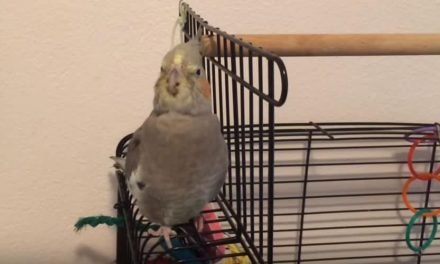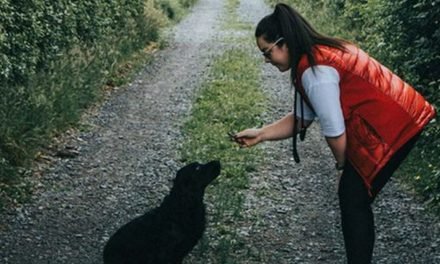Lower Your Veterinarian Costs And Increase the Longevity of Your Pets Lives By Doing Natural Preventative Care
Unfortunately the pharmaceutical companies and the pet food industry have really pulled the wool over everyone’s eyes -but the wool is coming off! People are frustrated with the way traditional care has let them down and are seeking alternatives to help them not only give their pets more quality of life but longer lives. It seems as though we barely get our pets to a “settled” place in our lives before they’re gone. It doesn’t have to be like this.
Please don’t misunderstand, mainstream care does have its place but it should not be the only choice people and their pets have. In fact, I think it’s the imbalanced lean towards allopathic medicine rather than including homeopathic and naturopathic and alternative therapies that is a big part of the problem. At some point where do we stop and say, what happened to “first do no harm”?
Okay, so let’s start with what preventative, natural, holistic care means with a definition of the words holistic, preventative and natural which I obtained from my American Heritage Dictionary: 1. Holistic: …2) emphasizing the importance of the whole and the interdependence of its parts. 2. Natural: 1) present in or produced by nature; not artificial or man-made; 3) pertaining to or produced solely by nature or the expected order of things 3. Preventive: 1) designed or used to prevent or hinder; acting as an obstacle; precautionary. 2) Thwarting or warding off illness or disease. When we put all these definitions together: the whole of the parts working interdependently, without artificial ingredients or synthetics, in the natural order of things you will then ward off illness or disease! Now that we have the definition of natural pet care in place, let’s go deeper into the how to do this and thereby lowering the costs of your pet care and increase the longevity of your pets lives.
The first place to always start is with nutrition and that starts with what you are feeding your pets. My initial answer will be as species specific as you can get in a domestic setting. For dogs and cats that means that meat needs to be the primary ingredient of their food. Not kibble. Kibble isn’t fit for anything or anyone to eat. There a couple I will recommend in the light of a very reluctant pet owner not being able to stomach the idea of feeding raw meat to their dog or cat, but I will say that as long as you adhere to kibble your pets will experience the problems associated with food that their bodies weren’t designed to digest.
There are many different forms of feeding natural for example in dogs you can choose a B.A.R.F. diet which translates to Biologically Appropriate Raw Food and can also stand for Bones and Raw Food. This diet consists of all raw meats, veggies, dairy products, and nuts. Some adhere to strictly feeding raw meat. Some to a cooked diet of meat and vegetables. I think that you’ve got to decide what will work in your household and do that and any of these, including the cooked diet is far better than any form of a kibble diet. Think of animals in the wild – they do not get kibble or pellets. Our domestic pets don’t need those things either!
I feed my dog a cooked meat diet along with a natural whole food liquid supplement. I also use essential oils to thwart parasites and help with the pain in his forelegs. He came to us as a very abused, starved, neglected nearly 5 month old puppy. Through trial and error we’ve found what keeps him healthy, strong and happy and he is completely natural. We do homeopathic for heartworm prevention. He actually runs with me and traditionally his breed is not a running breed – or so it’s thought! So you also need to include some precautionary nutrition along with natural feeding. For horses you always need to be concerned with worms but there are natural ways like using food grade (ONLY use food grade) diatomaceous earth –this also works well in cats, dogs and other warm-blooded animals but I prefer to use essential oils in my dog.
Next I would consider why vaccinating seems to be so important to your pets health. Let me give you just a few examples of why that could be the very thing that is harming your pets rather than helping them (information from www.shirleys-wellness-cafe.com):
“Routine” vaccination has adverse side-effects, either short or long term. With vaccines that are repeated year after year, the frequency and severity of these side-effects in our pets has increased dramatically. Most of the problems involve the immune system. After all, the immune system is what vaccines are designed to stimulate. But they do so in a very unnatural way that can overwhelm and confuse the immune system.” Donna Starita Mehan DVM. I believe that Dr. Mehan is saying here that while vaccinations stimulate the immune system and that is supposed to rev it up, the vaccine actually not only does this unnaturally as Dr. Mehan stated but it also causes so much confusion in the immune system that much more harm than good is done by vaccinating.
Dr. Ronald D. Schultz, Ph.D..- “Annual revaccination provides no benefit and may increase the risk for adverse reactions. The percentage of vaccinated animals (those vaccinated only as puppies) protected from clinical disease after challenge with canine distemper virus, canine parvovirus and canine adenovirus in the study was greater than 95%.” Current and Future Canine and Feline Vaccination Programs. Dr. Ronald Schultz is a Professor and Chair of the Department of Pathobiological Sciences at the School of Veterinary Medicine, UW-Madison. Schultz, R.D. – Current & Future Canine & Feline Vaccination Programs. Vet Med 3: No. 3, 233-254, 1998 more. A chart provided in the report shows immunity levels for all vaccines currently given to dogs lasting a minimum of 5 years with most lasting 7-15 years! Don Hamilton, DVM -Yearly “boosters” are unnecessary, provide no benefit if given (will not increase immunity). Thus boosters are either a legal issue (Rabies) or a manipulation issue (inducing clients to come in for examination rather than directly suggesting an examination). Charles E Loops DVM – “Homeopathic veterinarians and other holistic practitioners have maintained for some time that vaccinations do more harm than they provide benefits. Vaccinations represent a major assault on the body’s immune system…. Vaccine induced chronic diseases range from life-threatening conditions such as auto-immune crises to conditions destroying the quality of life of an animal as in chronic skin allergies.”
These are just a few examples with veterinarians leading the way in sharing this information which I find interesting since vaccinations and surgeries are their bread and butter. A few of the holistic/homeopathic vets I know started in mainstream medicine and became frustrated and moved into the holistic arena so they could do their patients the most good. Feed correctly with proper back up supplementation and your pets will have natural immunities that protect them naturally from disease.
Another thing to do is to keep your pets stimulated mentally through exercise, play and training. Animals love to have a job and they love to be useful. The key to a good interaction here is training according to the natural interaction of the animal you own. What does that mean? For a dog it means approaching him or her using the “pack” mentality. For the horse it means approaching the horse the way another horse would. It all makes common sense really. Good practical common sense, do away with all these synthetics, using the natural order of things, and all the parts working together means you don’t treat an illness, you treat the pet. I like what I saw Dr. Shawn Messonnier write recently to one of the groups I belong to, “I don’t treat crystals in the urine, I treat the pet”. That’s what holistic means: all the parts working together interdependently. So not treating the symptoms but caring for the entire animal is the answer to lowering your veterinarian costs and increasing the longevity of your pets lives.
Originally published for the Holistic Pet Care Topic on Suite101.com





Recent Comments